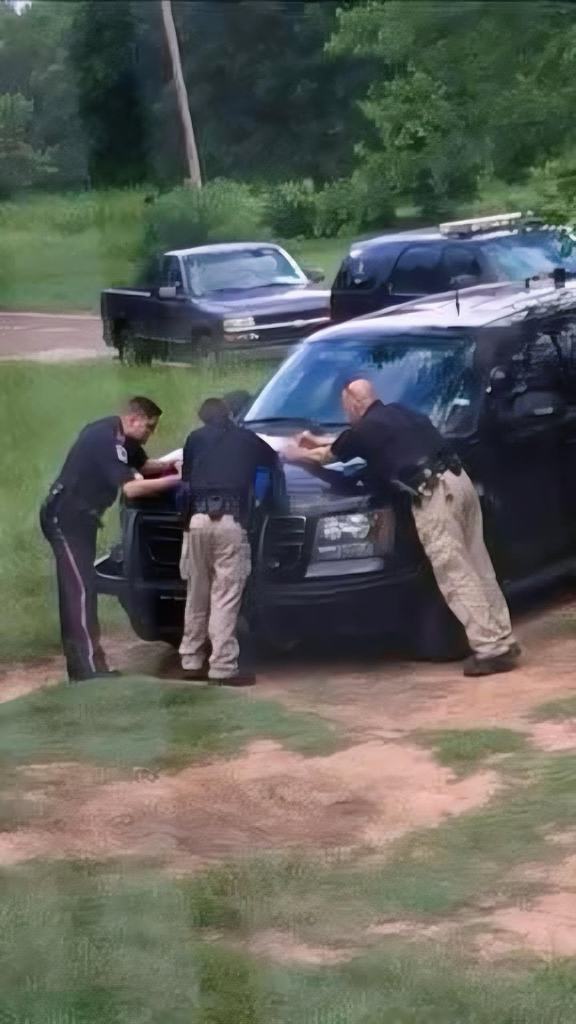This past week has pushed us to our limits. Six separate times, police officers were called to our home—each time because my son’s meltdowns had escalated into full-blown rages. As a parent of a child with autism, I’ve learned that even the most ordinary day can spiral quickly. And yet, amid fatigue, fear, and uncertainty, something surprising and deeply meaningful emerged.
The Heightened Strain of Struggles at Home
When your child cannot easily verbalize distress, loss of routine or inability to express feelings becomes a storm. For us, one meltdown stretched into another, and the chain reaction built until law enforcement was summoned more times than I ever imagined possible.
Each visit felt like walking a tightrope. I worried—how will they see my child? Will they understand the depths of what’s happening behind the outburst? Will they act with restraint, with empathy, or with force? In so many of our cultural narratives today, the assumption leans one direction. But our experience would tell a different, more complicated story.

Meeting the Officers: First Impressions, Global Judgment
When the first officer stepped through our front door, I braced myself. My son was wild with emotion—yelling, thrashing, inconsolable. I held my breath, scrutinized the shoes he wore, the stance he took. Would he be firm, heavy-handed, dismissive? Or would he try to understand?
He did something I didn’t expect: he asked questions. He listened. Not the perfunctory kind of listening just to check a box—but with curiosity, humility, and patience. Over the course of the week, different officers came and went, but the tone of that first one set a precedent: these men didn’t arrive assuming guilt or danger—they came seeking to understand.
The Incident That Tipped My Heart
On the day that still echoes in my mind, my son, John, insisted on dressing like Joe from Blue’s Clues. But I couldn’t find the exact shirt he wanted. That small frustration blew up into something much bigger. The rage, the confusion, the pain—it all poured out.
By the time the officers arrived, tensions had peaked. But after things settled—after calm returned—they quietly excused themselves. And when they came back in, in their hands were a blue shirt (not perfect, not tailor-made)—a shirt they had gone out to buy themselves. And in that moment, they sat down with my daughter Jenn’s fabric markers and tried to draw elements to make it look like Joe’s. They worked slowly, tenderly, carefully, wanting to bridge that gap between what John wanted and what was possible.
Was the shirt a masterpiece? No. Did it look exactly like Joe’s? Far from it. But the fact they tried—that attempt—felt monumental. Three officers, sitting side by side, drawing and coloring, laughing lightly at their own imperfect work, and seeking validation from a child whose emotions had dominated the day. That act overwrote every fear I’d harbored. It became a memory I will carry forever.
What True Compassion Looks Like
Sometimes, heroism isn’t a grand rescue; sometimes it is simply showing up in the small, human moments. In our struggle, these officers made an effort to cross into John’s world—not as enforcers, but as companions. They didn’t pretend to have all the answers. They asked. They stayed. They tried.
I watched them shift from uniformed strangers to people who recognized John’s humanity—the one underneath the outbursts. That they did this on the heels of repeated calls in a single week is what astonishes me most. Because often, repeated calls can provoke impatience, rigidity, a defensive stance. Instead, in every encounter, they held onto curiosity.
What This Means for All of Us
We live in a time when stories about law enforcement are often shallow or polarized. But our experience taught me something deeper: there’s room for nuance, for empathy, for imperfect people doing their best in impossible situations.
Maybe you’ll read this and remember your own encounters: whether with police, with service workers, with people who struggle to speak for themselves. Maybe this makes you pause and ask: Do I give others space to explain? Do I listen before judging? Do I see the person beneath the reaction?
Because sometimes, small acts matter more than grand ones. Because kindness doesn’t need perfection—it needs presence.